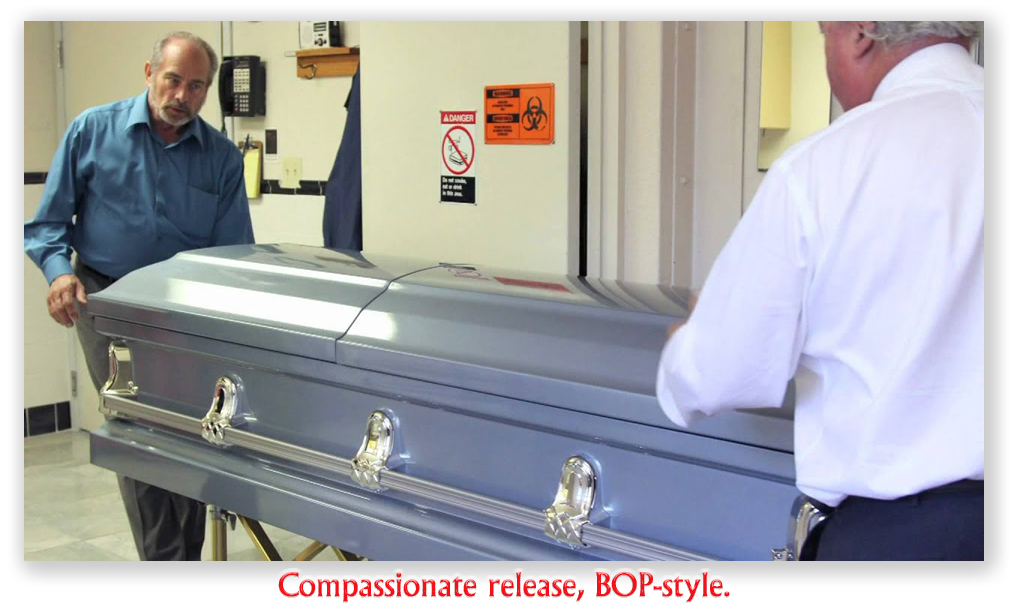We post news and comment on federal criminal justice issues, focused primarily on trial and post-conviction matters, legislative initiatives, and sentencing issues.

CAN’T TEACH AN OLD DOG NEW TRICKS
 The Bureau of Prisons has been notorious for refusing to make sentence reduction recommendations to courts because dying inmates seemed to be in pretty good health, and surely able to finish their sentences, no matter what doctors might say. The First Step Act tried to remedy the BOP’s convenient myopia by letting inmates file for sentence reductions with district courts if the BOP refused to do so for them.
The Bureau of Prisons has been notorious for refusing to make sentence reduction recommendations to courts because dying inmates seemed to be in pretty good health, and surely able to finish their sentences, no matter what doctors might say. The First Step Act tried to remedy the BOP’s convenient myopia by letting inmates file for sentence reductions with district courts if the BOP refused to do so for them.
You’ll be glad to know that the government remains just as oblivious to medical reality and insensitive to impending death as ever. When Steve Brittner’s BOP doc told him that his Stage IV brain tumor was bad enough to withdraw further treatment and sign him up for hospice care, Steve filed for an 18 USC § 3582(c) sentence reduction so he could die at home.
The government opposed the reduction, arguing Steve did not have a terminal illness within the meaning of the guidelines because his medical records “do not indicate that the tumor has metastasized.” Plus, the government contended, Steve could not show “extraordinary and compelling” circumstances because his medical records did not indicate an inability to care for himself.
Last week, Steve’s district court swept aside the government’s opposition and said Steve could die at home. First, the court said, the Guidelines on sentence reduction do not require that Steve show that his tumor has metastasized for his condition to be terminal. Instead, the guidelines provide a number of examples of medical conditions that would meet the standard for a “terminal illness.”’ A metastatic solid-tumor cancer” is just example.
Second, to show extraordinary and compelling circumstances, an inmate does not have to show both a terminal illness and inability to care for oneself. “The Government reads a conjunctive requirement into the guideline comment where none occurs,” the district court observed. The Guidelines provide that “extraordinary and compelling” reasons exist “under any of the circumstances set forth below,” of which a terminal condition is one and inability to care for oneself is another.”
“Of importance,” the court wrote, “the treatment options available to Brittner have been exhausted. According to the last treatment note available to the Court, dated November 15, 2018… the plan… was to hold, or discontinue further therapy, and it was recommended to Brittner that he consider comfort measures, specifically hospice, which his treating oncologist “considered very reasonable due to worsening performance status… It is clear from the nature of his disease and his worsening condition as documented above, that Brittner’s prognosis is grim, his disease is terminal, and the length of his life can be measured most likely in weeks, as opposed to months.”
United States v. Brittner, 2019 U.S. Dist. LEXIS 73653 (D.Mont. May 01, 2019)
Reason.com, A Terminally Ill, Wheelchair-Bound Inmate Applied for Compassionate Release. The Justice Department Argued He Wasn’t Dying Fast Enough to Qualify (May 3)
– Thomas L. Root


